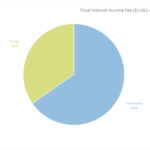DUI Reduced to Reckless Driving in Florida: How It Affects Your Insurance
In Florida, facing a DUI charge can have severe repercussions, but there are situations where the charge might be reduced to reckless driving. While this reduction might seem like a more favorable outcome, it still has significant implications for your car insurance. Understanding how a DUI reduced to reckless driving impacts your insurance can help you navigate the aftermath more effectively. This article explores the effects of a reduced DUI charge on your insurance rates and offers guidance on managing these changes.
What Does It Mean When a DUI is Reduced to Reckless Driving?
A DUI (Driving Under the Influence) charge in Florida is a serious offense that can result in heavy fines, license suspension, and even imprisonment. However, in some cases, individuals may be able to negotiate a plea deal where the DUI charge is reduced to reckless driving. Reckless driving, while still a criminal offense, is generally less severe than a DUI.
Key Differences Between DUI and Reckless Driving:
- Severity: DUI typically involves driving with a blood alcohol content (BAC) of 0.08% or higher, while reckless driving refers to operating a vehicle in a manner that shows willful disregard for safety, without necessarily being impaired by alcohol.
- Penalties: The penalties for a DUI are generally more severe and include mandatory license suspension, higher fines, and potential jail time. Reckless driving penalties may include fines, points on your driving record, and possible jail time, but they are usually less severe.
Legal Impact:
Reducing a DUI to reckless driving often involves negotiating with prosecutors and may require showing that you are taking steps to address the underlying issues, such as alcohol education or treatment programs.
Impact on Your Car Insurance
Having a DUI reduced to reckless driving still affects your car insurance, though the impact may be less severe compared to a DUI conviction. Here’s how this reduction can influence your insurance premiums and coverage:
1. Increased Insurance Premiums
One of the most immediate effects of a reckless driving charge is an increase in your insurance premiums. Insurance companies view reckless driving as a serious violation that indicates higher risk. Consequently, they may raise your premiums to offset the increased risk associated with your driving behavior.
How Much Can Premiums Increase?
- Severity of Violation: The amount by which your premiums increase depends on the severity of the reckless driving charge and your driving history. On average, you might see a 20% to 50% increase in your insurance premiums.
- Insurance Provider Policies: Different insurance providers have varying policies regarding reckless driving. Some may increase your rates more significantly, while others might be more lenient.
2. Points on Your Driving Record
In Florida, a reckless driving conviction adds points to your driving record. Accumulating points can lead to higher insurance rates and may even result in the suspension of your driver’s license if too many points are accumulated over a certain period.
Points System:
- Florida’s Point System: A reckless driving charge typically adds four points to your driving record. Accumulating 12 or more points within 12 months can lead to a license suspension.
- Impact on Insurance: Insurance companies use points on your driving record to assess risk. More points generally result in higher premiums.
3. Difficulty Finding Coverage
Some insurance companies may be hesitant to offer coverage to individuals with a reckless driving charge on their record. This can make it challenging to find affordable insurance options, as insurers might categorize you as a high-risk driver.
Finding Coverage:
- High-Risk Insurance Providers: If you have difficulty finding coverage, you may need to seek out insurers specializing in high-risk policies. These companies often cater to drivers with violations on their records but may charge higher premiums.
Managing Insurance Costs After a Reckless Driving Charge
While a reckless driving charge can increase your insurance premiums, there are steps you can take to manage and potentially reduce these costs:
1. Shop Around for Quotes
Different insurance providers assess risk and set premiums differently. It’s essential to shop around and compare quotes from multiple insurers to find the best rates available.
Comparing Quotes:
- Online Tools: Use online comparison tools to get multiple quotes quickly.
- Insurance Agents: Consider speaking with insurance agents who can provide personalized quotes and advice based on your specific situation.
2. Consider Defensive Driving Courses
Completing a defensive driving course can sometimes lead to discounts on your insurance premiums. These courses demonstrate a commitment to safe driving and can help mitigate some of the premium increases associated with a reckless driving charge.
Benefits:
- Discounts: Some insurers offer discounts for completing approved defensive driving courses.
- Improved Driving Record: A course can also help improve your overall driving skills and reduce the risk of future violations.
3. Maintain a Clean Driving Record
Maintaining a clean driving record going forward is crucial. Avoiding additional traffic violations and accidents can help reduce the impact of the reckless driving charge on your insurance premiums over time.
Long-Term Strategy:
- Safe Driving: Focus on safe driving practices to avoid accumulating more points and further violations.
- Regular Reviews: Periodically review your insurance rates and driving record to ensure you are getting the best possible rates.
Conclusion: Navigating Insurance After a Reduced DUI Charge
Having a DUI reduced to reckless driving in Florida can still have significant implications for your car insurance. Increased premiums, points on your driving record, and potential difficulty finding coverage are all considerations you’ll need to address. By understanding these impacts and taking proactive steps, such as shopping around for quotes, completing defensive driving courses, and maintaining a clean driving record, you can better manage the effects of a reckless driving charge on your insurance.
Navigating the aftermath of a reduced DUI charge requires careful consideration and strategic planning. By staying informed and taking the right steps, you can work towards minimizing the financial impact on your insurance and ensuring that you continue to receive the coverage you need.










